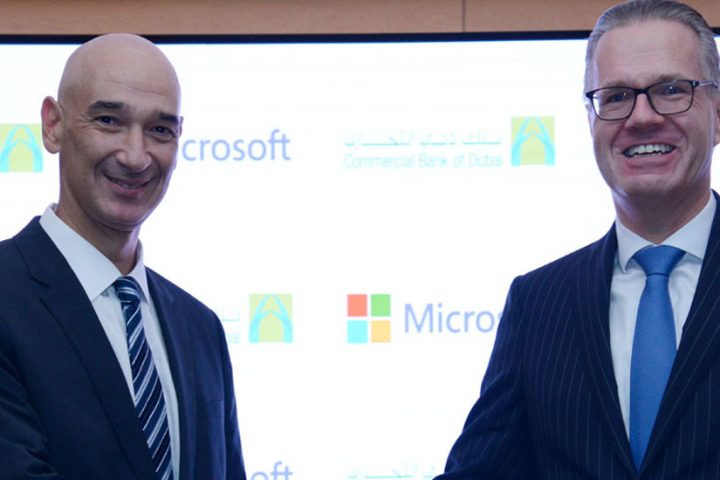Dubai Airports announced that it has migrated to Microsoft Azure Cloud platform as part of an ongoing strategy to drive digital transformation across the organisation, engaging customers, empowering employees, optimising operations and reinventing products and services. As a regional and global hub for leisure and business travellers, Dubai airports have received some 90 million passengers each year, expected to increase to 120 million by 2025. Dubai Airports, in a renewed effort to ensure that each passenger’s experience is enjoyable and hassle-free, decided to take a fresh look at its technology infrastructure.
“The time had come to look at the global realities of our business,” said Michael Ibbitson, Executive Vice President of Technology and Infrastructure, Dubai Airports. “Some 50% of our operational data is generated overseas, at other airports and by many different airlines. It quickly became clear that cloud services were no longer optional for us. Their benefits are evident: flexibility, agility, capacity, scalability and cost-effectiveness. The cloud allows us to maintain the level of service that passengers the world over associate with the emirate of Dubai, while building a secure environment in which everyone can feel safe.”
Security was a key consideration for Dubai Airports’ business technology decision makers. In a diligent assessment of the technology industry, they concluded that only cloud providers have the economies of scale and experience necessary to provide the level of protection that Dubai Airports was seeking.
The next steps in Dubai Airports’ digitisation journey will also include adoption of Dynamics 365, Microsoft’s all-purpose commerce platform that merges ERP with CRM and connects all aspects of a business to the power of the intelligent cloud. The rollout of customer service functionality is currently in progress, and a later phase will include Dynamics’ accounts management modules.
Microsoft invests more than $1 billion annually in cybersecurity research and development. The company’s Azure platform was built from the ground up with the technology industry’s most advanced security measures integrated into every layer. Client data is encrypted both at rest and in transit, and a team of seasoned cybersecurity experts maintains a 24-7 vigil, to ensure that Microsoft customers can operate in the cloud with complete confidence.
Microsoft has been a partner of Dubai Airports for 15 years. The company already hosts mission-critical applications on Azure, such as Al Majlis, e-services and WOW-Fi. Dubai Airports’ team also uses Office 365 and SharePoint for automation, collaboration and productivity as well as Yammer.
Microsoft has seen a surge in demand for its cloud services across the GCC and wider MEA region in recent years. According to a Microsoft survey, more than half 51% of organisations identified cloud computing as a top priority. Spurred by these findings, Microsoft announced in March this year that it would deliver its trusted, secure and versatile cloud to Middle East customers from two new dedicated datacentres in the UAE, one in Dubai and the other in Abu Dhabi.
“The time had come to look at the global realities of our business,” said Michael Ibbitson, Executive Vice President of Technology and Infrastructure, Dubai Airports. “Some 50% of our operational data is generated overseas, at other airports and by many different airlines. It quickly became clear that cloud services were no longer optional for us. Their benefits are evident: flexibility, agility, capacity, scalability and cost-effectiveness. The cloud allows us to maintain the level of service that passengers the world over associate with the emirate of Dubai, while building a secure environment in which everyone can feel safe.”
“Cloud services are not necessarily unsafe or insecure, but your management of them may well be,” added Ibbitson. “You need to choose the right partner, as we have carefully selected Microsoft, for its track record in service and security – and develop your people so they learn how to use SaaS, IaaS and other cloud services safely.”
“We are looking forward to accompanying Dubai Airports on the next leg of its digital transformation journey,” said Sayed Hashish, Regional General Manager, Microsoft Gulf. “Managing the world’s busiest international hub requires bold thinking and careful planning. An entire service ecosystem may hang on your decisions. The intelligent cloud puts information at the fingertips of those who need it, and provides the flexibility and scalability to roll out new applications quickly, so that your customers continue to receive that top-class service they have come to expect.”
“Microsoft’s mission is to empower every person and every organisation on the planet to achieve more. The digital transformation opportunities delivered by the intelligent cloud are extensive. Empowerment, engagement, optimisation, reinvention; they are all there to capture,” he added.

Key takeaways
- Cloud services are not necessarily unsafe or insecure but management of them may well be.
- Develop your people so they learn how to use SaaS, IaaS and other cloud services safely.
- According to Microsoft survey 51% organisations identified cloud computing as a top priority.
- Microsoft announced in March 2018 two new datacentres in UAE, Dubai and Abu Dhabi.
- Security is key consideration for Dubai Airports’ business technology decision makers.
- Only cloud providers have economies of scale to provide the level of protection that Dubai Airports was seeking.
- The next steps in Dubai Airports’ digitisation journey include adoption of Dynamics 365.
- Rollout of customer service functionality is in progress and a later phase will include Dynamics’ accounts management modules.






















